LIVE STREAMING DAY 3 DAY 2 DAY 1 2024 marks the 50th anniversary of the…
Speakers
Adebayo Olukoshi
Adebayo Olukoshi has more than 35 years of experience in the area of international relations, governance and human rights, both in the academic sector and in intergovernmental institutions. Olukoshi was a member of the African Union Assessment Panel and Chair of the Board of several Think Tanks, including European Centre for Development Policy Management and Open Society Initiative for West Africa. He also previously served as Director of the UN African Institute for Economic Development and Planning, as Executive Director of the Africa Governance Institute, as Executive Secretary of the Council for Development of Social Science Research in Africa, as Director of Research at the Nigerian Institute of International Affairs; Senior Research Fellow/Research Programme Coordinator of the Nordic Africa Institute in Uppsala, and Senior Programme Staff at the South Centre in Geneva.
Aaron Thegeya
Aaron Thegeya is Director at Aliquot Ltd, an economics and technology consulting firm. He was previously Senior Economic Advisor to the Deputy Chief of Staff, Executive Office of the President of Kenya. In addition, he has previously worked as an Economist at the International Monetary Fund and the World Bank. Aaron holds a Ph.D. in Economics, which he obtained from the University of Oxford as a Rhodes Scholar. He also completed a Post-Doctoral Research Fellowship at the Said Business School, University of Oxford.
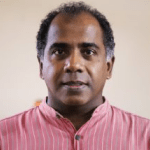
Ahilan Kadigarmar
Ahilan Kadirgamar is Senior Lecturer, Department of Sociology, University of Jaffna, Sri Lanka. He holds a PhD in Anthropology from the Graduate Center, City University of New York, a MA in Economics from the New School for Social Research and a BS in Electrical Engineering from the Georgia Institute of Technology. He is a fortnightly columnist in the Daily Mirror, an Editorial Board Member of the Sri Lanka Journal of Social Sciences and a Board Member of Himal Southasian Magazine. His research interests include agrarian change, co-operatives and women’s livelihoods, and regularly writes on the political economy of Sri Lanka in forums such as The Hindu in India. He is currently the Honorary Chair of the Northern Co-operative Development Bank and a member of the Jaffna Peoples Forum for Co-existence. He served on the Central Bank of Sri Lanka appointed committee to draft the Economic Development Framework for a Northern Province Master Plan (August 2018).
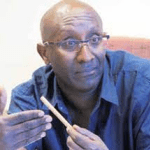 Alemayehu Geda
Alemayehu Geda
Alemayehu Geda is Professor of Economics at the Department of Economics, Addis Ababa University. He is also a research associate of the University of London (SOAS, CDPR, London), the UN Economic Commission for Africa (ECA, Addis Ababa), African Economic Research Consortium (Nairobi), The Kenyan Institute for Public Policy Research and Analysis (KIPPRA, Nairobi), Central Bank of Kenya and Economic Policy Research Center (EPRC, Kampala). He has worked as a consultant for a number of international organizations including the UN ECA, The UNDP, the World Bank, SIDA, DFID as well as the governments of Ethiopia, Kenya, Uganda, Tanzania, and Zambia. He has taught Macroeconomics, Macroeconometric Modelling and International Economics at the University of London, Addis Ababa University, Haremaya University and the African Economic Research Consortium. He has widely published on African and Ethiopian Economy in major international journals including a book by Macmillan (2002) and a forthcoming book on International Trade for Developing Countries (2011) by Palgrave-Macmillan and Applied Time Series Econometrics for Africa, University of Nairobi Press (2011) and Reading on Ethiopian Economy, 2011, Addis Ababa University Press.
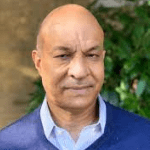
Ali Zafar
Ali Zafar is a macroeconomist and private sector specialist with more than 20 years of experience researching policy and advising governments in sub-Saharan Africa, South Asia, and the Middle East. His work focuses on macroeconomic policy, governance, private sector competitiveness and infrastructure finance, with particular emphasis on low-income, post-conflict, and emerging market economies. He is the author of the book, The CFA Franc Zone: Economic Development and the Post-Covid Recovery (Palgrave MacMillan, 2021) and co-author of Tales from the Development Frontier: How China and Other Countries Harness Light Manufacturing to Create Jobs and Prosperity (World Bank Group, 2013). In addition to his books, he has written numerous papers exploring a variety of technical topics such as exchange rate dynamics, fiscal frameworks for natural resources management, capital market development, and investment climate reform. Over the course of his career he has served as a Senior Economist with the International Finance Corporation and World Bank, as well as a consultant to the United Nations, Gates Foundation, African Development Bank and USAID. He currently serves as the Economic Advisor & Head of Development Policy Research Hub for UNDP.
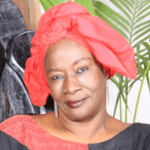
Aminata Traoré
Aminata Dramane Traoré is an essayist, former Minister of Culture and Tourism of Mali, and coordinator of the Forum for Another Mali (FORAM). She is the author of several works including “L’Étau ou l’Afrique dans un monde sans frontière” (Actes Sud- 1999), “Le Viol de l’Imaginaire” (Actes Sud/Fayard, 2001), and “L’Afrique Humiliée” (Fayard, 2008). She co-wrote “La gloire des imposteurs” with Boubacar Boris Diop (Philippe Rey, 2014) and “L’Afrique mutilée” with Nathalie Dela Mounier (Taama, 2012). Aminata Dramane Traoré has received several awards, including the international “Blue Planet 2021” prize from the German foundation Ethical and Economic (Ethcon), and the Prince Claus Award for Culture in 2004. She was elevated to the rank of Grand Officer of the National Order of Mali in 2016.
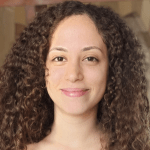
Amira Mahmoud Othman
Amira Mahmoud Othman is a Research Analyst at the Office of Strategy Management and Institutional Effectiveness at The American University in Cairo.
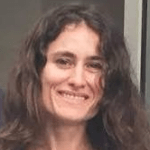
Andrea Molinari
Professor Andrea Molinari holds a Ph.D. in Economics from the University of Sussex and a BA in Economics from the University of San Andrés. She is currently an Adjunct Researcher of the National Council of Scientific and Technical Research (CONICET), based at the National University of San Martín (UNSAM), where she is also the Director of the Center of Studies of Economic Development (CEED) and Professor of International Economics at Buenos Aires University (UBA). International economics, and more recently international political economy, has always been her main field of study, with a focus on regional integration, development financing, and South-South cooperation. She worked as Executive Director for Argentina and Haiti at the Inter-American Development Bank (IDB) Board and as Senior Advisor for Japan, Brazil, Argentina, Austria, and Saudi Arabia at the African Development Bank. Within the professional field, she has also worked in both governmental and international organizations, such as the Ministry of Industry and Central Bank of Argentina (BCRA), The World Bank, and the European Commission.
Brian Kampanje
Brian Phiri Kampanje is a Visiting Professor in Accounting and Finance at Malawi Assemblies of God University but also Founder and Managing Editor of Mergers, Acquisitions and Disposals Journal – ISSN: 2789-9470, INTL Sustainability Journal, as well as, INTL Forex Management Briefs. His focus is on publishing commercial and sometimes social matters affecting Malawi by bringing out practical solutions and novel ideas.
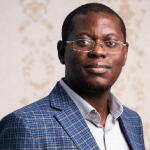
Bright Simmons
Bright Simons is a Ghanaian social innovator, entrepreneur, writer, and social and political commentator. He is the vice-president, in charge of research at IMANI Centre for Policy and Education. He is also the founder and president of mPedigree.
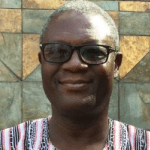
Charles Abugre
Charles A. Abugre is the current Executive Director of IDEAs. A Development Economist trained at the University of Ghana Legon and the Institute of Social Studies, The Netherlands, his research areas are in public finance, poverty and inequalities and natural resource governance. He has co-authored publications n international taxation and tax justice, African debt and development finance and is a regular contributor to the African Governance Report and the African Economic Report published by the UN Economic Commission for Africa (UNECA). He was previously a senior public servant with the Government of Ghana, a regional director for the UN Millennium Campaign (UNDP), head or research and policy at Christian Aid UK and lecturer at Swansea University, UK. He serves as a non-Executive Director of the Tax Justice Network among others.
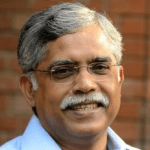
C P Chandrasekhar
C.P. Chandrasekhar is an economist based in New Delhi and former Professor of Economics at Jawaharlal Nehru University. His areas of interest include the macroeconomics of development and the role of finance and industry in developing countries. He is a regular columnist for Frontline, Business Line, and the Economic and Political Weekly. Among his recent publications are two books titled Demonetisation Decoded: A Critique of India’s Currency Experiment (co-authored and published by Routledge) and Karl Marx’s Capital and the Present: Four Essays (Tulika Books).
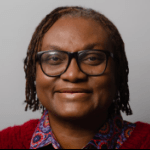
Dzodzi Tsikata
Dzodzi Tsikata is Professor of Development Sociology and immediate past Director of the Institute of African Studies (IAS) at the University of Ghana. Her research in the last 30 years has been in the areas of gender and development policies and practices; agrarian change and rural livelihoods; the labour relations of the informal economy and transformative social policy. Her recent publications are the co-edited (with Elisabeth Prügl and Fenneke Reysoo) Forum in the Journal of Peasant Studies on the theme “Commercializing Agriculture/Reorganizing Gender” (JPS 48,7, September 2021). She is also the Principal Investigator of a pan-African research, networking and advocacy project, the Gender Equitable and Transformative Social Policy for Post-COVID-19 Africa (GETSPA) which is examining the social policy trajectories of thirty-one African countries. She is the secretary of the executive committee of IDEAS and a member of the Agrarian South Network.
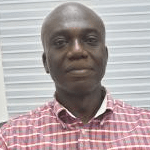
Emmanuel A. Cudjoe
Emmanuel A. Codjoe is a Senior Lecturer & Programme Coordinator of the Economic Policy Management Programme (EPMP) at the University of Ghana.
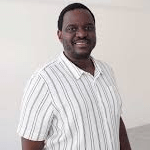
Grieve Chelwa
Dr. Grieve Chelwa is an Associate Professor of Political Economy at the Africa Institute and Senior Fellow at Tricontinental: Institute for Social Research. Prior to this, he was the Director of Research at the Institute on Race, Power and Political Economy at The New School. Before joining The New School, Dr. Chelwa was a senior lecturer in economics at the University of Cape Town. From 2016 to 2017, Dr. Chelwa was the inaugural postdoctoral fellow at the Center for African Studies at Harvard University. His scholarly work has appeared in journals such as the Journal of Economic Literature, Review of Political Economy, Applied Economics Letters, Social Science and Medicine, Daedalus: Journal of the American Academy of Arts and Sciences, and Economy and Society. Dr. Chelwa’s opinions have appeared in outlets including the New York Times, the Washington Post, the BBC, France 24, Bloomberg and CGTN among others.
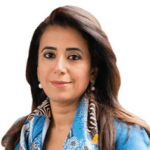
Hanan Morsy
Ms. Hanan Morsy is the Deputy Executive Secretary (Programme) and Chief Economist at the United Nations Economic Commission for Africa and has published on a wide range of economic and development issues. She was previously the Director of Macroeconomic Policy and Research at the African Development Bank where she provided thought leadership on economic issues and oversaw the production of rigorous analytical work that strengthened the Bank’s policy dialogue and operations across its member countries. Ms. Morsy worked previously as Associate Director and Lead Economist for the Southern and Eastern Mediterranean Region at the European Bank for Reconstruction and Development in London and in that role, she established and headed the economic analysis and policy advisory services for the new region of operation, led country missions, and developed country strategies. She holds a Ph.D. in Economics from the George Washington University, USA, and a Master’s degree in Economics from the University of California, Davis, USA.
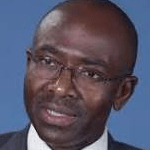
Hippolyte Fofack
Hippolyte Fofack is a former chief economist and director of research at the African Export-Import Bank (Afreximbank). He is also a research associate at the Harvard University Center for African Studies, a distinguished fellow at the Global Federation of Competitiveness Councils, and a fellow at the African Academy of Sciences.
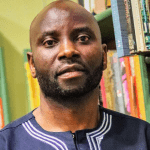
Horman Chitonge
Horman Chitonge is professor at the Centre for African Studies, and research associate at PRISM, School of Economics, University of Cape Town (UCT). He is a vising fellow at the African Studies Centre, Tokyo University of Foreign Studies. His research interests include agrarian political economy, hydro-politics, and alternative strategies for economic growth in Africa. His most recent books include: Industrial Policy and the Transforming the Colonial Economy in Africa: The Zambian Experience (Routledge, 2021). Industrialising Africa: Unlocking the Economic Potential of the Continent ( Peter Lang, 2019); Land, The State and the Unfinished Decolonisation Project in Africa: Essays in Honour of Professor Sam Moyo (Laanga Publishers, 2019); Social Welfare Policy in South Africa: From the Poor White Problem to a Digitised Social Contract (Peter Lang, 2018); Contemporary Customary Land Issues in Africa: Navigating the Contours of Change (Cambridge Publishers, 2017); Economic Growth and Development in Africa: Understanding Trends and Prospects (Routledge, 2015).

Howard Stein
Howard Stein is a Professor in the Department of Afroamerican and African Studies (DAAS) and the Dept. of Epidemiology at the University of Michigan. He is a development economist educated in Canada, the US and the UK. He has published more than a dozen books and edited collections and more than 125 journal articles, book chapters and reviews. He has held various academic appointments at the University of Dar Es Salaam, Tanzania; Hitotsubashi University, Japan; Sussex University, UK; Trinity College, Ireland; University of Lisbon, Portugal; and University of Leiden, Netherlands. He has undertaken research in a variety of African countries on topics like foreign aid, finance and banking, neoliberalism, the methodology of Randomized Controlled Trials, health and gender, climate change, industrial policy, export processing zones, agricultural policy, African overpayment on sovereign bond issues, poverty and rural property right transformation, income inequality, Chinese economic relations and the institutionalization of neoclassical economics.
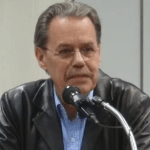
Jan Kregel
Jan Kregel is a Professor of development finance at Tallinn University of Technology, adjunct Professor at the New School for Social Research and editor of the Journal of Post Keynesian Economics. He previously directed the Policy Analysis and Development Branch of the United Nations Financing for Development Office and was deputy secretary of the UN Committee of Experts on International Cooperation in Tax Matters. In 2009, Kregel served as Rapporteur of the President of the United Nations General Assembly’s Commission on Reform of the International Financial System. He has published extensively, contributing over 250 articles to edited volumes and scholarly journals, including the Economic Journal, American Economic Review, Journal of Economic Literature, Journal of Post Keynesian Economics, Economie Appliquée, and Giornale degli Economisti. His major works include a series of books on economic theory, including Rate of Profit, Distribution and Growth: Two Views, 1971; The Theory of Economic Growth, 1972; The Reconstruction of Political Economy, 1973; Theory of Capital, 1976; and Origini e sviluppo dei mercati finanziari, 1996; and Ragnar Nurkse: Trade and Development (with R. Kattel and E. S. Reinert), 2009.
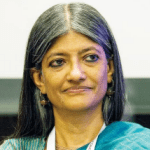
Jayati Ghosh
Jayati Ghosh taught economics at Jawaharlal Nehru University for nearly thirty-five years and is now Professor of Economics, University of Massachusetts, Amherst, USA. She has authored and edited (alone and in collaboration) 20 books and published more than 200 scholarly articles, in addition to writing frequently in the popular media. She has been Executive Secretary, IDEAs, and serves on a number of international commissions.

John Cajas Guijarro
John Cajas Guijarro is a Doctor in Development Economics (FLACSO-Ecuador). Professor at the Central University of Ecuador (School of Economic Sciences), and visiting professor at several universities at the undergraduate and graduate levels. His research areas include political economy, development economics, econometrics, Ecuadorian economy (with emphasis on dollarization, labor market, and economic policy), international trade.
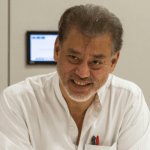
Jomo Kwame Sundaram
Jomo Kwame Sundaram is Senior Advisor at the Khazanah Research Institute, Fellow of the Academy of Science, Malaysia, and Emeritus Professor at the University of Malaya. He was the Founder-Chair of IDEAs. He was Assistant Director General and Coordinator for Economic and Social Development (ADG-ES), Food and Agriculture Organization of the United Nations from August 2012 until December 2015, Assistant Secretary General for Economic Development in the United Nations’ Department of Economic and Social Affairs (DESA) from January 2005 until June 2012, and (Honorary) Research Coordinator for the G24 Intergovernmental Group on International Monetary Affairs and Development from December 2006 until September 2012. In 2007, he was awarded the Wassily Leontief Prize for Advancing the Frontiers of Economic Thought. He has authored and edited over a hundred books and translated ten volumes besides writing many academic papers and articles for the media.
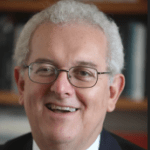
Jose Antonio Ocampo
José Antonio Ocampo is Professor at the School of International and Public Affairs, co-President of the Initiative for Policy Dialogue (IPD) and Member of the Committee on Global Thought at Columbia University. He is also Chair of the Committee for Development Policy of the United Nations Economic and Social Council (ECOSOC), and Chair of the Independent Commission for the Reform of International Corporate Taxation (ICRICT). He teaches regularly at Universidad de los Andes and other Colombian universities. He has occupied numerous positions at the United Nations and his native Colombia, including UN Under-Secretary-General for Economic and Social Affairs, Executive Secretary of the UN Economic Commission for Latin America and the Caribbean (ECLAC), and Minister of Finance, Minister of Agriculture, Director of the National Planning Office of Colombia, and Member of the Board of Directors of Banco de la República (Colombia’s central bank). He has received numerous academic distinctions, and has published extensively on macroeconomic theory and policy, international financial issues, economic and social development, international trade, and Colombian and Latin American economic history.
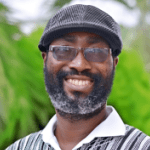
Kofi T. Asante
Kofi Takyi Asante is a Senior Research Fellow at the Institute of Statistical, Social and Economic Research (ISSER) at the University of Ghana. His research lies at the intersection of political, economic, and historical sociology. His substantive research areas include colonialism and state formation, citizenship, governance, and development. His research over the years has focused on exploring the emergence, transformations, and contemporary character of the Ghanaian state, as well as the implication of these political economy trends on citizenship and civic engagement. He has consulted for many local and international organisations, including UNDP, Open Government Partnership (OGP), International Budget Partnership (IBP) among others. He is a member of the Editorial Board of Ghana Studies; an Editorial Committee member of the Child Marriage Information Portal of the Ministry of Gender, Children, and Social Protection (MoGCSP); and was a part-time Senior Research Fellow at the Institute of Democratic Governance (IDEG). His publications have appeared in African Economic History, Ghana Studies, and Oxford Development Studies, among others. He studied at the University of Ghana, the London School of Economics and Political Science, and Northwestern University. Before joining ISSER, he was a postdoctoral fellow at the Institute for Advanced Study in Toulouse (IAST).

Mma Ekeruche
Ms. Mma Amara Ekeruche is a Senior Research Fellow at the Centre for the Study of the Economies of Africa (CSEA), Nigeria’s premier economic think tank. In addition, she runs a column ‘Your Nigerian Economist’ on Stears Business, Africa’s leading business publication. She holds a Master’s in Economic Policy from University College London (UCL), United Kingdom and a Bachelor’s Degree in Economics from Kwame Nkrumah University of Science and Technology (KNUST), Ghana. Her research interests are public finance and debt management, domestic resource mobilization, and macroeconomic management. Consequently, her research experience cuts across key issues in development including public debt, South-South Cooperation, and the impact of Chinese investment in Africa. You can find her work on the Think20, Brookings Institution, the International Centre for Tax and Development, the United Nations Office on South-South Cooperation, and Southern Voice. She was also awarded the IMF Youth Fellowship in 2020.
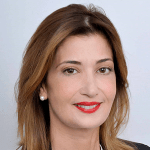 Mouna Ben Othman
Mouna Ben Othman
Mouna Ben Othman is a lecturer in economics at the Ecole Supérieure des Sciences Economiques et Commerciales de Tunis (Higher Institute of Business and Economics of Tunisia- ESSECT). She is a Doctoral Fellow in Economics at the Faculty of Economics, Sophia Antipolis in Nice. Her thesis was on the Macroeconomic Effects of Pension Reform System in the context of Tunisia. She is interested in research on the macroeconomic effects of pension reform system on the labour market. She is also passionate about women in the labour market, and in view of that, she has joined the Tunisia Policy Circle Association which aims at strengthening the capacities of women in the labour market, and stimulating and building a network. She is also a Treasurer in the Tunisian Organization for Social Cohesion, OTCS, which aims at stimulating young Tunisian women who are marginalized and do not have access to the labour market.
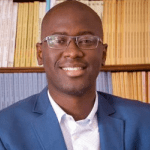
Ndongo Samba Sylla
Ndongo Samba Sylla is a Senegalese development economist and is currently Head of Research and Policy (Africa region), IDEAs Network. He has previously worked as a technical advisor at the Presidency of the Republic of Senegal. He is currently a Senior Research and Program manager at the West Africa office of the Rosa Luxemburg Foundation (Dakar). His publications cover topics such as Fair trade, labor markets in developing countries, social movements, democratic theory, economic and monetary sovereignty. He authored The Fair Trade Scandal. Marketing Poverty to Benefit the Rich, Pluto Press & Ohio University Press, 2014. He coauthored Africa’s Last Colonial Currency. The CFA Franc Story, Pluto Press, 2021. He is a coeditor of Economic and Monetary Sovereignty for 21st century Africa (Pluto Press, 2021). He tweets at @nssylla

Nkumbu Nalwimba
Nkumbu Nalwimba holds a Ph.D. in Rural Development and Management from China Agricultural University, and researches foreign aid, agricultural investments, farmer input programs, agricultural insurance, agricultural value chains, livelihoods, political economy and land governance. She works for the Ministry of Agriculture in Zambia in the Department of Agribusiness and Marketing. She was a Research Fellow for the International Poverty Reduction Center in China (IPRCC) from August 2016 to July 2017. Her research articles have been published in The Journal of Peasant Studies; GeoJournal, among other journals.
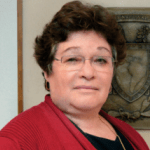
Noemi Levy
Noemi Levy She was born in Chile; has a B.A in Social Science (Economics), and her Master and PhD degree in Economics (National Autonomous University of Mexico, UNAM, Mexico), for which she got the cum-laude distinction and the Antonio Casso Medal (the best Economic Dissertation of Economics) for the PHD respectively. In 2014 she was given the “Premio Universidad Nacional 2014” in the field of Economics and Administration, which is the highest recognition that UNAM gives to professor, she is a Member (numeral 77) of the Mexican Academy of Political Economy (2015), and was presented with the Recognition Sor Juan Ines de la Cruz (2019) for women professor trajectory. She is a full-time professor in the Economic Faculty, UNAM, and has highest qualification in her academic performance (PRIDE, level “D”), and she is member of the Mexican National Research System (SNI, level III –highest level). Her area of academic interest in the economic field is Monetary Finance and Economic Development, with emphasis in the Heterodox economic theory. She has written three books (one in co-authorship) and edited more than 16 books (including international publishers – Edward Elgar and Routledge), written more than 40 chapters in book, and around 30 journal papers.

Peter Doyle
Peter is an independent economic researcher. He previously held the position of senior economist at the International Monetary Fund, where he served as an economist focusing on Hungary, South Africa, Namibia, Lithuania, Czech Republic, Slovak Republic, and Czechoslovakia. Before joining the IMF, Peter worked at the Bank of England and was a Fellow of the Overseas Development Institute.
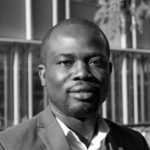
Raymond Frempong
Raymond Frempong studied Economics (BA and MPhil) at the University of Cape Coast (Ghana) and PhD in Economics at the University of Bayreuth (Germany). His research interests are development economics, health economics, the economics of child labour, rural and agricultural development, food security, and regional integration. He has authored several scientific publications in peer-reviewed journals like Energy Economics, Development Policy Review, Journal of Development Studies, Nature Communication, PNAS nexus, and World Development. Dr Frempong’s research has been funded by grants from several organizations and institutions. He worked previously as a postdoctoral researcher at the Chair of Development Economics, University of Bayreuth.
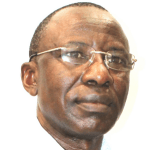
Redge Nkosi
Redge Nkosi is an Executive Director and Head of Research for Money, Banking and Macroeconomics at Firstsource Money, a non-partisan policy research and advisory services organisation. He is also the founding member and director of the London-based Monetary Reform International, an institution charged with reforming the global banking and monetary system. His research interests are in banking and money as they relate to macroeconomics. Before these, he held various roles in the South African government, including holding executive positions in agencies of the Ministry of Transport, and as an international trade and economic policy official in the Ministry of Trade and Industry.
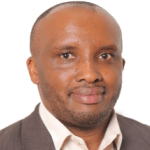
Samuel M. Mwangi
Samuel M. Mwangi teaches and is a researcher at the Department of Sociology, Gender and Development Studies at Kenyatta University, Nairobi, Kenya. He holds a Bachelor of Education from Kenyatta University, a Master of Arts (Gerontology) from Wichita State University, Kansas and a PhD (Social Gerontology) from Miami University of Ohio, USA. He has published work on income security, palliative care, gerontology education, intergenerational relations, social support systems for rural elders, and positive socio-economic impacts of rural industrial parks and of access roads in urban informal settlements. He has undertaken consultancies with the Retirement Benefits Authority of Kenya on extending pension coverage to informal sector workers, market segmentation of retirement benefits, and risks and opportunities associated with lumpsum benefits. His recent engagement on social policy was the Gender Equitable and Transformative Social Policy in Post-COVID-19 Africa (GETSPA) – phases 1 and 2.

Yan Liang
Yan Liang is Peter C and Bonnie S Kremer Chair Professor of Economics at Willamette University. She is also a Research Associate at the Levy Economics Institute and a Research Scholar of the Global Institute for Sustainable Prosperity. Yan specializes in MMT, Economic Development, International Economics and the Political Economy of China. Yan publishes in various leading heterodox journals and contributes to a number of heterodox books. Yan received several grants from the Institute for New Economic Thinking, the Luce Foundation, and the Chinese Ministry of Education. Yan is a regular commentator on the China Global TV Network, Bloomberg, Yahoo!Finance, the Diplomat Magazine, the East Asia Form, China Academy of Social Sciences Magazine, among others. Yan is an elected board member of the Association for Evolutionary Economics and immediate past president of Association for Institutional Thought. She currently serves as guest editor for the Chinese Economy.
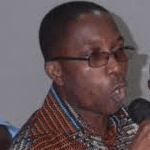
Yao Graham
Yao Graham is the Coordinator of Third World Network-Africa, a pan-African policy advocacy organisation based in Accra, Ghana. Yao studied law at the University of Ghana, the Free University of Brussels (VUB), Belgium and the University of Warwick, Coventry, UK where he obtained his PhD. He has worked on African and international development issues for many years – as a public intellectual and activist, government official and journalist. He has worked on African minerals and development issues for more than two decades. International trade and investment and minerals and development issues have been particular areas of focus in his work at TWN-Africa. He has written and lectured extensively on mineral policy issues. Yao is the Africa Editor of the journal Review of African Political Economy (ROAPE) and was the founding editor of the Ghanaian bi-weekly newspaper Public Agenda.
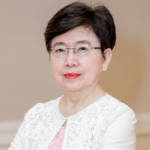
Yuefen Li
Yuefen Li is Senior Advisor on South-South Cooperation and Development Finance at the South Centre . Currently, she is involved in the finance track of the G20 work. She served as the UnitedNations Independent Expert on Foreign Debt and Human Rights. She is co-Chair of the Debt Relief for Green Recovery initiative. She has worked in the United Nations Conference on Trade and Development for 24 years, and held various senior positions including Head of Debt and Development Finance and Senior Economic Affairs Officer. Before joining UNCTAD, she was a lecturer at the University of International Business & Economics in Beijing. She was a guest professor of TsinghuaUniversity. She has published books, papers and articles in refereed professional journals and newspapers on issues relating to debt, development strategies, South-South cooperation, finance, trade. She has contributed extensively to UNCTAD and South Centre publications and documents.

